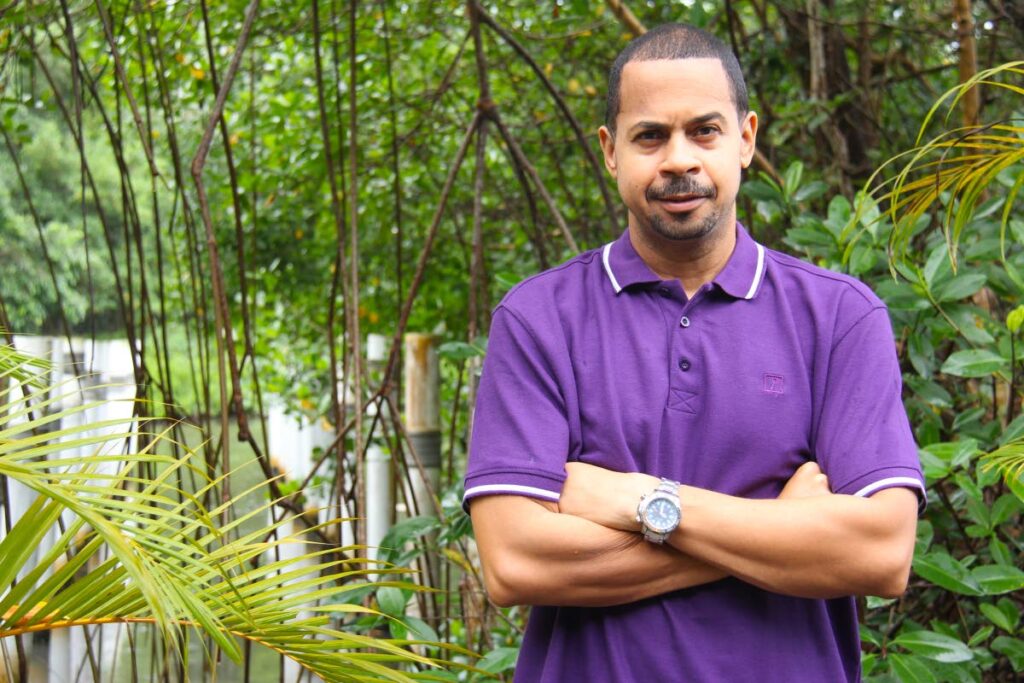Anatomy of a Trini criminal

PAOLO KERNAHAN
Part II
PRIME Minister Dr Rowley's naive admonitions to relatives of gunmen to stop covering for them is a timely reminder of this administration's overly simplistic approach to confronting the tsunami of bloodshed threatening to drown the country.
None of what we're facing though, happened overnight. We are now living and dying in a confluence of factors that have been ignored for decades.
Video clips of large numbers of young people brawling outside MovieTowne circulated on social media recently. Onlookers trying to minimise the terrifying incident boiled it down to a failure of security.
"This happens all the time. That's what security is for!"
This is, of course, nonsense. That's like going down with the Titanic repeating, "But she's unsinkable!"
The more important question that arose in response to the circulating video clips was this: "Where are the parents?"
Crime is often blamed on bad parenting. Simply pinning crime on absentee parents isn't a useful perspective.
During my former career as a journalist, I spent a fair amount of time reporting in and on marginalised communities. In many cases, I saw children born to children repeating the mistakes of their ill-prepared parents.
Why? Well, because this is the only environment they know. It's the experience that surrounds them and shapes their world: teenagers having children.
Young people who become parents prematurely simply don't have the tools to navigate responsibilities that follow. Their parents didn't have the tools either, and so they inherited the hopelessness of their forebears.
In single-parent households, with multiple mouths to feed on limited or nonexistent incomes, raising children tends to be focused on daily survival rather than nurturing young minds.
Harried young mothers can't cope with the demands of the role. In many cases, the streets provide the parenting the home can't supply.
The question, then, is, "Why have children you can't care for?"
The reasons are numerous. Teenage girls in underprivileged communities are often swept up by the charms of a young man offering a ride in a car and a box of KFC.
This seems ridiculous, but to these rudderless fledglings raised in lack or outright poverty, sootin' suitors represent financial means. It's only human to, if you can, align yourself with people better off than you.
To simply suggest young girls should remain chaste is beyond naive. As such, adolescent girls become adolescent mothers depending on these men to provide for them – by whatever means they must.
Additionally, given our ultra-conservative views towards reproductive health and sex education, teenagers are doing their own field research. TT didn't invent teen pregnancy, but we certainly pioneered some of the most backward attitudes toward education on the subject.
Young girls and boys aren't able to focus on education as the path to viable futures and an escape from generational failure because they are enmeshed in the hopelessness of the now. These are the factors that, in part, generate enduring despair in orphaned communities – fertile ground for criminality.
It's often said that we all make choices in life. That's certainly true, but like it or not, the quality of those choices is often influenced by the conditions at hand.
Such conditions are worsened, in no small measure by politics. Politicians draw strength from the weaknesses of these communities. The parasites cast themselves as the sole salvation of the poor. They provide employment (which adds no value), grants and hampers – just enough to keep them onside, but not enough to empower them with the kind of agency that breaks political shackles.
Party politics plays a more direct role in the intensification of criminality. Governments flood fractured communities with multi-million-dollar contracts under the guise of lifting local economies. These contracts often wind up in the hands of known gangsters.
This is by design, as criminal elements are enlisted to stir and enforce community political support. All that cash provides seed funding for more ambitious criminal enterprises like the drug trade and money laundering. It also unleashes war with other gangs tussling for their take of state largess.
Like engine and alternator, politicians court criminals in impoverished communities, giving them the charge they need to in turn recharge their political batteries. This keeps our society motoring along a highway to hell.
Crime is an inescapable feature of any society. Our culture of criminality is, to a considerable extent, engineered.
In TT, too many either have an interest in maintaining the status quo or are too lazy to do anything about it.

Comments
"Anatomy of a Trini criminal"